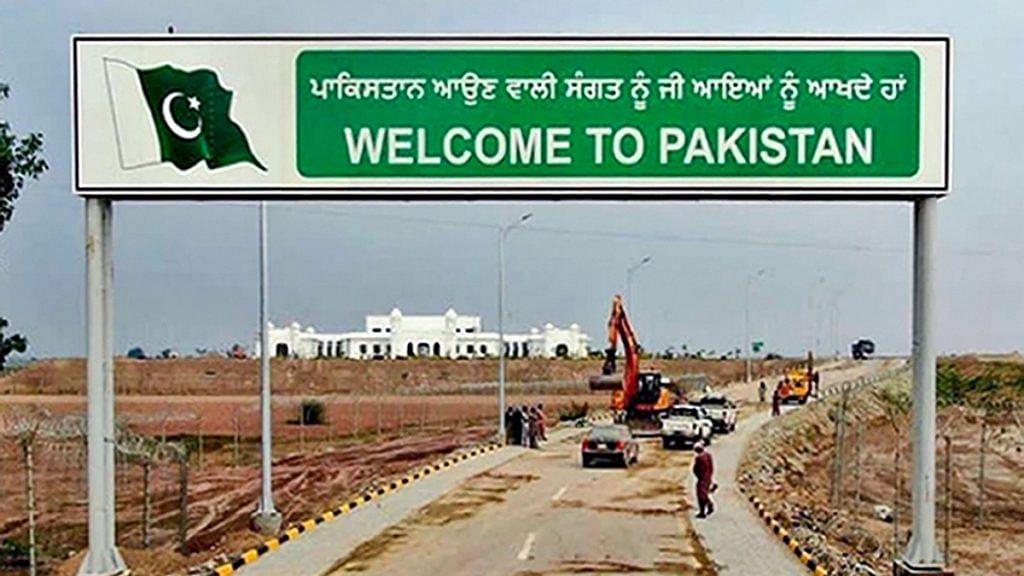With the Kartarpur corridor, the revival of Khalistani terror in Punjab is once again a real threat.
Days before the opening of the corridor, Pakistan’s official video to mark the ceremony featured pictures of three Khalistani separatists, including Jarnail Singh Bhindranwale.
While Punjab CM Amarinder Singh called out the “hidden agenda” of Pakistan, sources in the Narendra Modi government were quoted as saying that “powers larger than the civil government of Pakistan are pushing the project”.
With pro-Khalistan groups demanding ‘Referendum 2020’ and Pakistan being accused of supporting them, the ISI can use the Kartarpur corridor to send terrorists inside Punjab disguised as pilgrims, revive insurgency, and supply drugs and money illegally.
Also read: How Kartarpur Corridor talks went on despite India-Pakistan tension, diplomatic roadblocks
Corridor of terror?
The corridor, which opens Saturday, will connect Dera Baba Nanak shrine in Gurdaspur district of Punjab with the Gurdwara Darbar Sahib (also known as Kartarpur Sahib) in Kartarpur, Pakistan. The long-awaited project will finally fulfil the dream of millions of Sikh devotees in India.
Yet, it would be naïve to brush aside concerns regarding the corridor’s safety and security, and its potential to be misused by the Islamabad-Rawalpindi regime.
The Pakistan Army’s hand behind the corridor was evident as early as August last year when Congress leader Navjot Singh Sidhu hugged General Bajwa after being told that Pakistan was working towards opening the corridor in Kartarpur.
Instead of Pakistan’s political establishment talking to its counterpart in New Delhi, the military headquarters in Rawalpindi was more pro-active in taking forward the Kartarpur project.
Now that the passage is built, intelligence agencies in India have reportedly received information about terror outfits operating from camps close to the Kartarpur shrine.
One would not be off-the-mark to say that Pakistan is perhaps plotting a dangerous plan. The Pakistan Army has not forgotten the 1971 humiliation and would spare no effort to play dirty with India.
Even as Imran Khan said visiting devotees to Kartarpur Sahib need not carry passports, the Pakistan Army has overruled the decision. By scanning these passports, the ISI can build a huge database with the details of pilgrims, which can possibly be used by Pakistan-based terror outfits and non-state actors anywhere across the world.
Pakistan’s unusual haste in completing the Kartarpur corridor project can be attributed to the fact that the ‘Referendum 2020’, announced by leaders of some radical and self-styled Khalistani outfits, is only months away. The game plan of these outfits is to hold a referendum, albeit a sham one, and make a hue and cry over it internationally, and demand a separate country. It is highly unlikely that these outfits will ever succeed, but New Delhi cannot overlook the extent of damage caused by such sinister moves.
A number of sleeper cells are believed to be working overtime to create disturbances along the border and use the ensuing chaos to send in more infiltrators who, in turn, can carry out terror activities. The Khalistan movement in 1970s and 1980s had not just hurt Punjab’s economy, but created a deep schism in the country’s social fabric, which took decades to repair.
Another round of disturbances would pull the economy back by decades.
Also read: India says Kartarpur Corridor is a reality because of Pakistani Army, not Imran Khan
Need a two-pronged approach
The fact is that New Delhi had very little choice other than accepting the proposal for the corridor, which holds immense religious significance for Sikh devotees across India.
What the government needs to do now is constitute a high-powered strategic group to brainstorm on two key issues. First, this group should devise an immediate action plan to frustrate Pakistan’s attempts to revive the Khalistan movement through ‘Referendum 2020’ by pushing militants (in the guise of pilgrims) via the corridor.
Second, the group must work on a long-term, fool-proof plan to obtain physical control of Kartarpur Sahib and make it a part of Indian Punjab, as it was before Partition in 1947.
The Narendra Modi government knows that the success of the Kartarpur corridor can earn it immediate political dividends as well as a place in history. But any security goof-up can be just as disastrous as the Khalistan movement was.
Also read: History is offering two closures: Kartarpur & Ayodhya. And Modi has a starring role in both
The author is a member of the National Executive Committee of the BJP and former editor of Organiser. Views are personal.
